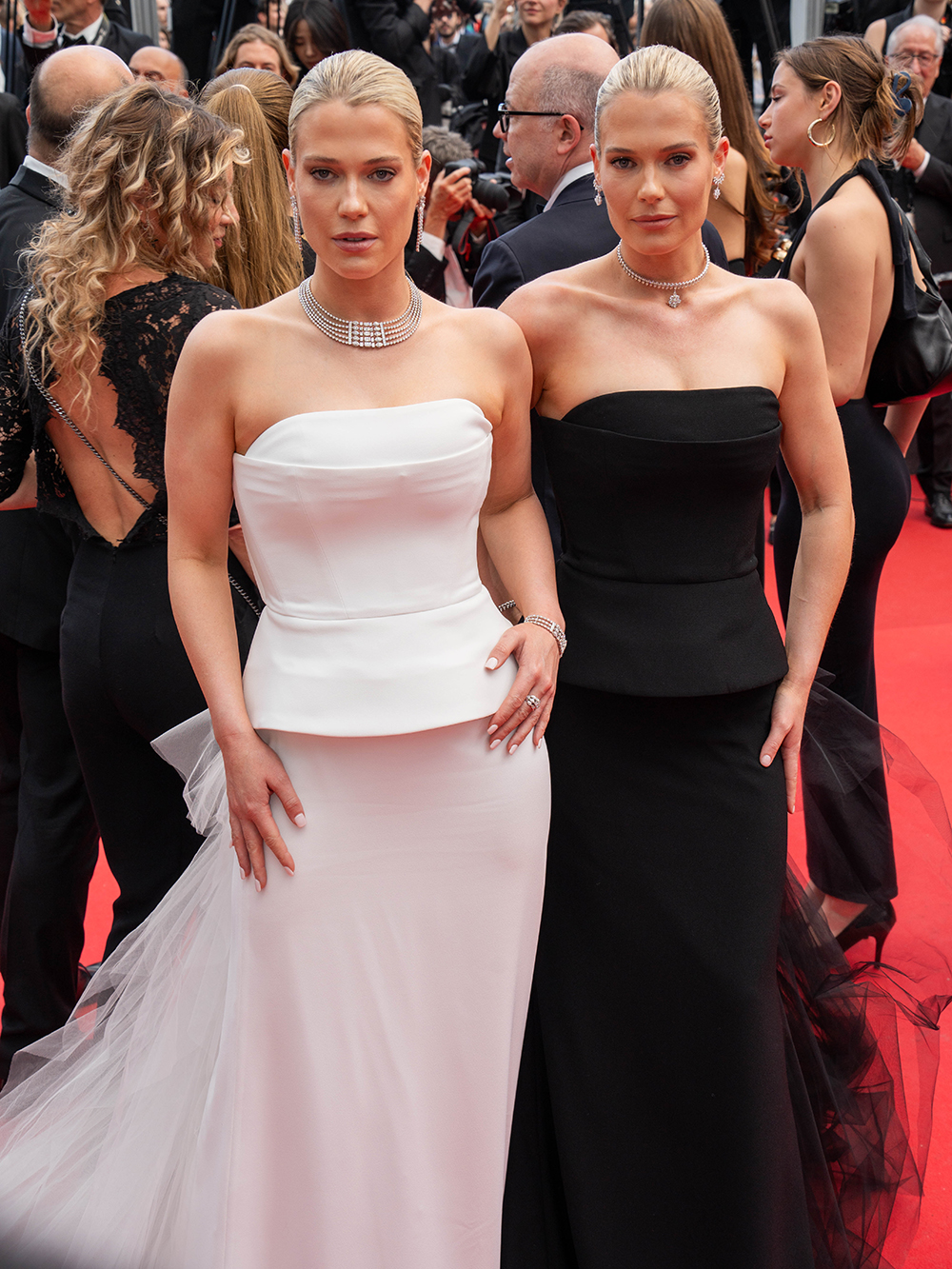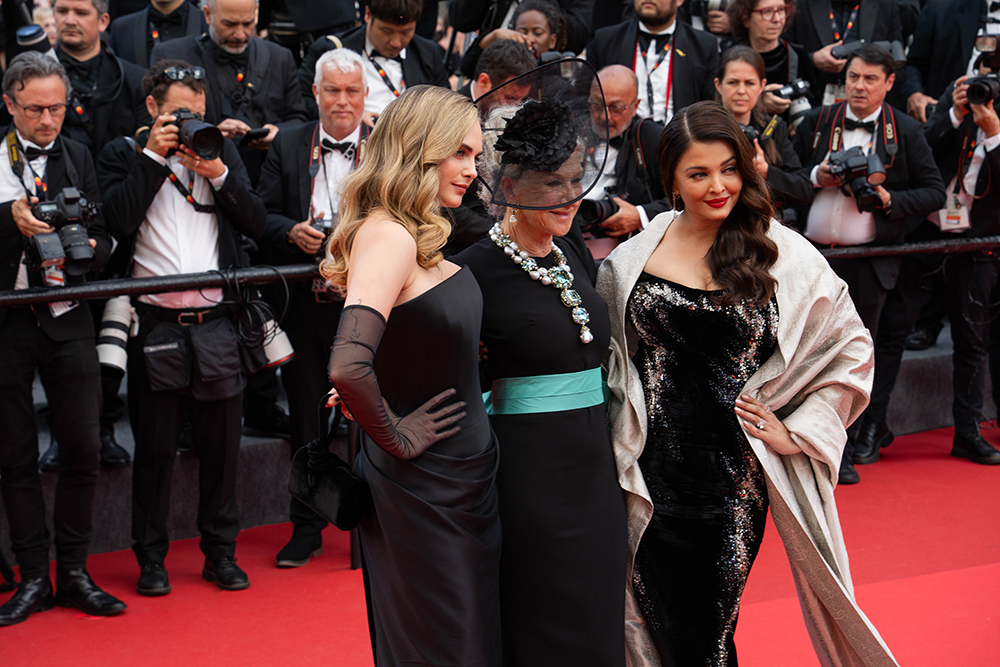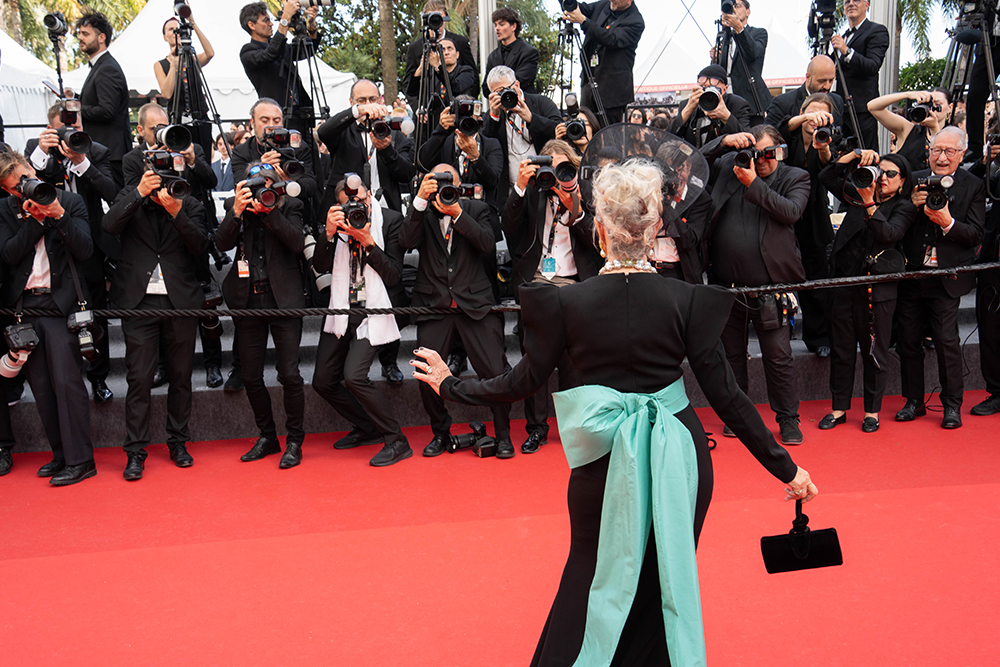Festivals - Cannes 2025 : Colours of Time by Cédric Klapisch Embarks on a Temporal Journey Through Family, Memory, and the Origins of Modern Art
By Mulder, Cannes, Palais des Festivals et des Congrès de Cannes, 22 may 2025

On May 22, 2025, the Palais des Festivals et des Congrès lit up with a warm, nostalgic glow as Colours of Time (La Venue de l’avenir) had its world premiere out of competition at the 78th Cannes Film Festival. Directed by Cédric Klapisch, this Franco-Belgian co-production marks a profound return to intimate storytelling for a filmmaker known for capturing generational nuances with sensitivity and flair. The film, a delicately structured coming-of-age period drama, intertwines the destinies of four modern-day cousins with the life of a woman named Adèle who, in 1895, left Normandy to live in the heart of an awakening Paris. This bridge between past and present not only touches on themes of memory and identity, but also casts a loving eye on the birth of photography and Impressionism—a period that visually and culturally shaped how we see the world today.
The Cannes premiere, though outside of the main competition, felt every bit as prestigious. A standing ovation greeted the cast and crew, with Suzanne Lindon and Vincent Macaigne receiving particularly warm praise for their nuanced performances. The atmosphere was one of reverence: Klapisch, often associated with youth-centric modern tales like L’Auberge Espagnole, has here delivered something both more mature and quietly magical. StudioCanal’s release of the film on the very same day in French theaters demonstrated a strong confidence in the universal appeal of this emotional, time-traveling narrative. Many at Cannes remarked on the quiet power of the film’s visuals—thanks in no small part to cinematographer Alexis Kavyrchine, whose lens bathed the narrative in soft natural light and evocative period detail, especially in scenes filmed in the lush gardens of Claude Monet’s house in Giverny and the misty cliffs of Étretat. The shoot, which began in April 2024, took the production from the serene towns of La Vespière-Friardel and Mesnils-sur-Iton to the bustling historic corridors of Gare Saint-Lazare, where a sequence shot aboard a Nomad Train added an authentic link between the provincial calm of Normandy and the industrial rhythm of Paris.

Much of the movie’s strength comes from its multi-generational ensemble cast. Suzanne Lindon, continuing her quiet rise after Spring Blossom, gives Adèle a soulful magnetism—rendering her not as a relic of the past, but as a visionary young woman whose journey toward self-expression mirrors the protagonists’ own quests for meaning in 2025. Meanwhile, actors like Paul Kircher and Zinedine Soualem bring texture to the modern cousins’ dynamic, blending humor, melancholy, and an evolving sense of kinship. The cousins’ gradual bond over their shared ancestry feels naturalistic, largely due to Klapisch’s co-writing with Santiago Amigorena, whose script navigates past and present with equal dexterity.
Robin Coudert’s musical score also deserves mention, not simply for its haunting elegance but for how it harmonizes two centuries. Strings and analog synths blend in a way that mirrors the film’s thesis: the future often emerges from the most fragile remnants of the past. Editor Anne-Sophie Bion, previously lauded for The Artist, maintains a rhythmic interplay between 1895 and 2025, ensuring the film never feels fragmented despite its temporal shifts. The resulting structure invites viewers to meditate on how personal histories mirror greater cultural transitions. As one attendee at Cannes noted during a post-screening conversation, “It’s a family story, yes, but it’s also a love letter to how art changes us—how photographs, paintings, journals—these fragile things survive when we don’t.”

What makes Colours of Time especially resonant in 2025 is its meditation on legacy in an era overwhelmed by digital ephemera. In this age where moments are fleeting and documentation is instantaneous, Klapisch challenges us to slow down and seek meaning in slower mediums—letters, oil paintings, faded photographs. And just as Adèle’s photographs unlock stories that the cousins never knew existed, so too does the film unlock something quietly profound for the viewer: the belief that the future is not some distant abstract, but a mirror we hold up to our past. Colours of Time is not just a period drama; it’s a tender excavation of roots, a cinematic heirloom that asks us not only where we come from, but what we carry forward.
You can discover our photos in our Flickr page
Synopsis :
Today, in 2025, around thirty people from the same family learn that they are about to inherit a house that has been abandoned for years. Four of them, Seb, Abdel, Céline, and Guy, are tasked with assessing its condition. These distant cousins discover hidden treasures in the old house. They find themselves following in the footsteps of a mysterious woman named Adèle, who left her native Normandy at the age of 20. Adèle arrives in Paris in 1895, at a time when the city is in the midst of an industrial and cultural revolution. For the four cousins, this introspective journey into their family history will reveal the unique moment at the end of the 19th century when photography was invented and Impressionism was born. This confrontation between the two eras, 2025 and 1895, will challenge their present and their ideals and reveal the meaning of “The Coming of the Future.”
Colours of Time (La Venue de l'avenir)
Directed by Cédric Klapisch
Written by Cédric Klapisch, Santiago Amigorena
Produced by Bruno Levy
Starring Suzanne Lindon, Abraham Wapler, Vincent Macaigne, Julia Piaton, Zinedine Soualem, Paul Kircher, Vassili Schneider, Sara Giraudeau, Cécile de France
Cinematography : Alexis Kavyrchine
Edited by Anne-Sophie Bion
Music by Robin Coudert
Production companies : Ce Qui Me Meut, StudioCanal, France 2 Cinéma, Panache Productions, La Compagnie Cinématographique
Distributed by StudioCanal (France)
Release dates : 22 May 2025 (Cannes), 22 May 2025 (France)
Running time : 124 minutes
Photos : @fannyrlphotography

